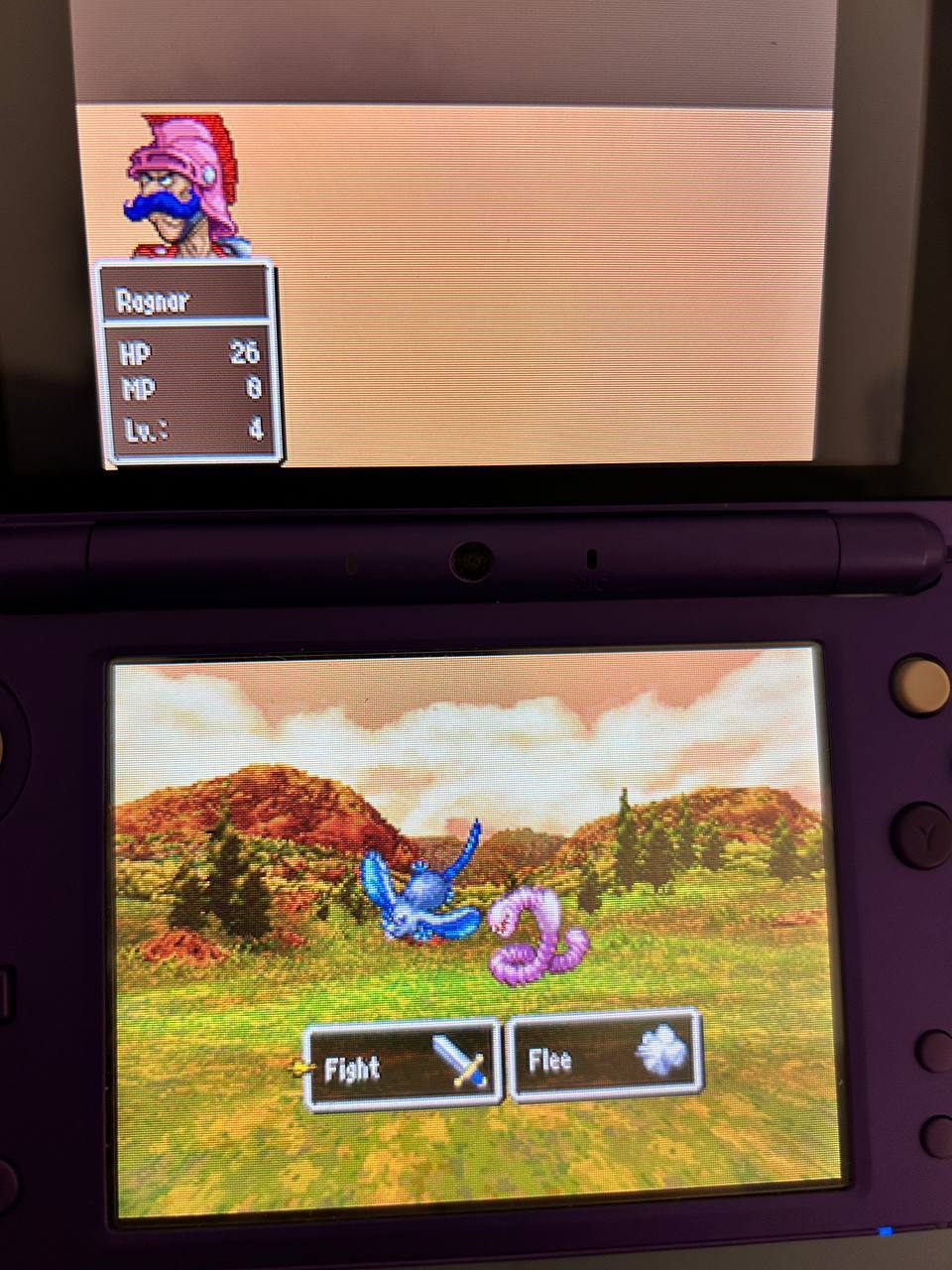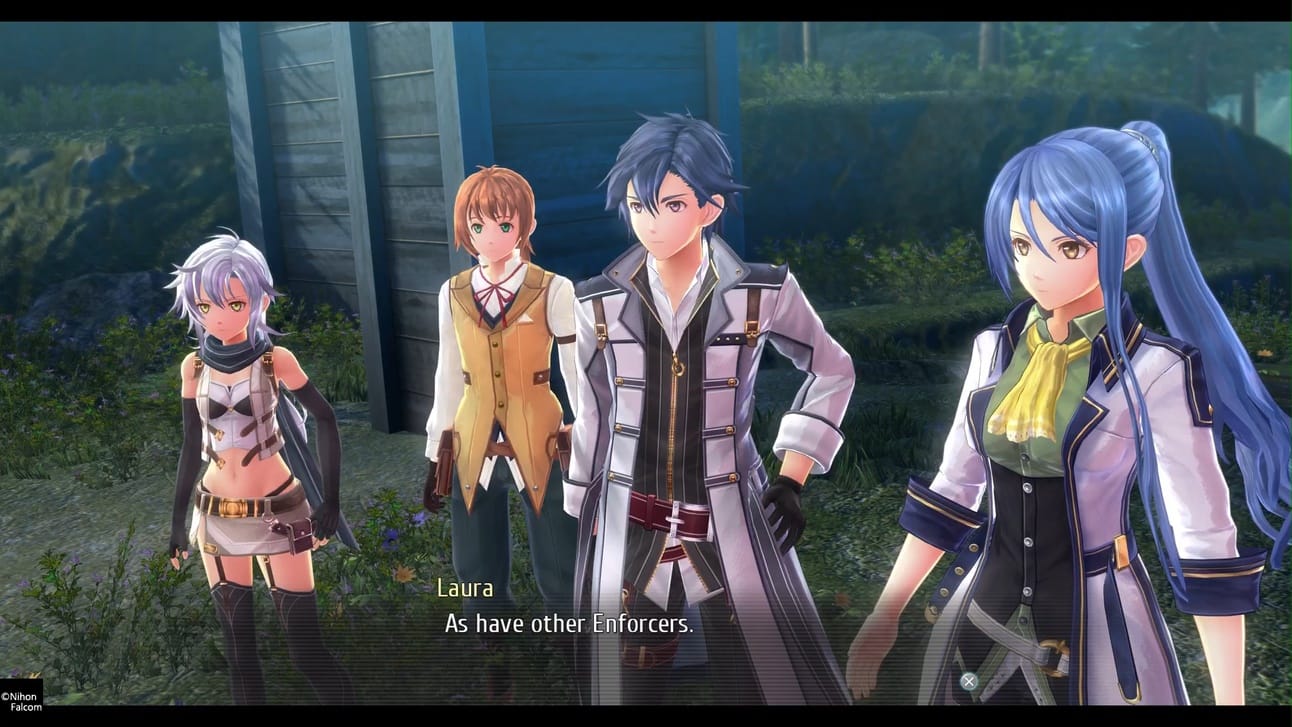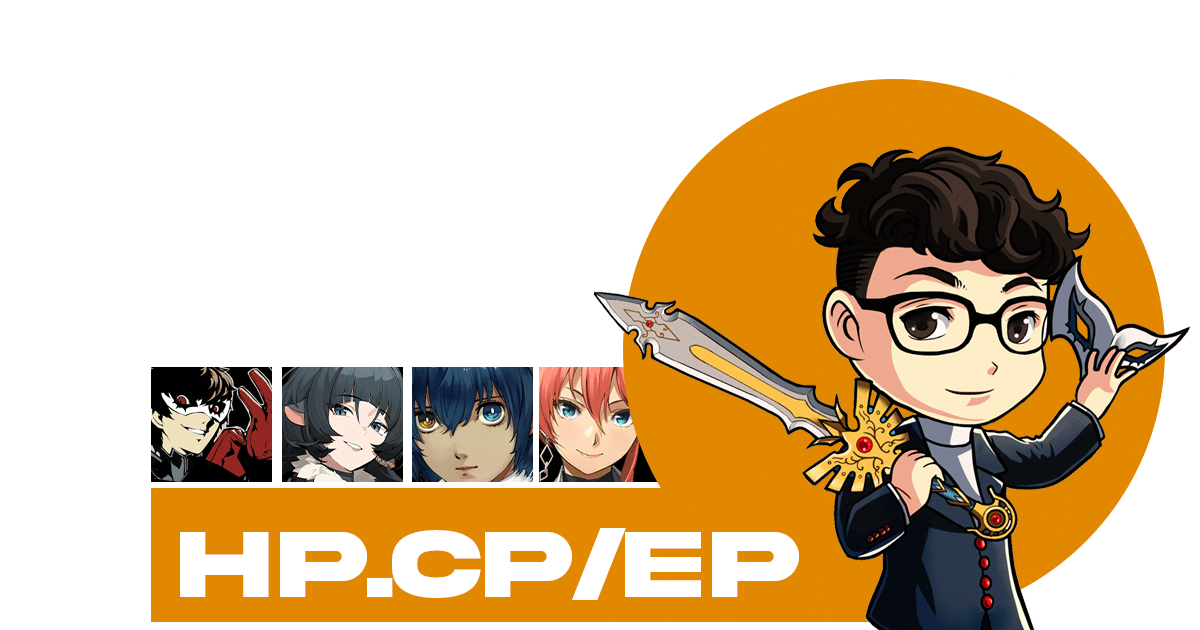- Daguerreo
- Posts
- HP.CP/EP: Dragon Quest IV is good at making characters protagonists of their own stories
HP.CP/EP: Dragon Quest IV is good at making characters protagonists of their own stories
Consider adding chapters where each character is the hero!
Notwithstanding the number of games released in these first months of 2025, which led me to add four games to my backlog, I am enjoying my time with Dragon Quest IV Chapters of the Chosen, the 2007 remake for the Nintendo DS. There are some hours for me to play before I roll the credits on this one, but I am convinced of how charming the simple concept of this game is. It is a fantasy game. The hero, the one on the cover of the game, is the central character in the game. However, Dragon Quest IV only gives you a taste of them before taking you through four chapters player distinct and unrelated – at least up until a certain part of the game. I love that and I think more games should do the same.
For you who are not familiar with Dragon Quest IV, when I say you need to play four chapters with other characters, I'm not saying the hero will be following them. It's not like Sora visiting Mulan's world, where you get to see what happens through the eyes of the protagonist. The hero is not there. The other character don't even know their existence. Each chapter focuses solely on their personal narratives. We have a soldier in charge of investigating the disappearance of some kids in a small village; a princess whose goal is to fight stronger enemies; a travelling merchant who wants to have his own shop and is looking for profitable opportunities; two sisters searching for their father's killer whereabout.
The chapters have their own logic. While in the first we play as a one-army soldier, the second introduces a party with a main damage dealer, a healer, and a magic caster. The third chapter is thematically coherent. We play as Torneko and, although he is a cool dude, his speciality does not involve facing a multitude of enemies by himself. He is, however, good with money, so monsters in his chapter have a higher drop rate of valuable items.
Once I started playing as the Hero in Chapter 5, the meetings with these characters became meaningful events, special moments. While a few knew about him and were looking for the Hero, others were just living their lives which led them to the life-changing encounter with the protagonist. I can feel that once I have completed the main mission of these other characters as a group, I will celebrate their victories just like I will when I beat the final boss. I'll be happy for Maya and Meena to have their vengeance; for Torneko when we find the Zenithian Sword; for Alena once she saves the people of Zamoksva; and so on.
As far as I've gone with the game, I believe this structure is perfect to make the whole roster of main characters as important as the so-called "Hero". Short episodes where they are the protagonists of their own adventure give us the chance to learn how they see things and to see the whole trajectory that made them who they are once the gang is together. I have been an enthusiast of games like this since I played Octopath Traveler. Maybe the moment when all the stories converge is not perfect, but the 2018 title showed a modern audience the potential of making every major character a protagonist.

Despite how much I like iconic main characters such as Persona 5's Joker and Dragon Quest 11's Luminary, I don't think it is fair how much they are allowed to shine throughout a game in comparison to other characters. We have fun watching them learning the ropes of whatever heroic activity they are getting into; we feel the excitement of them figuring out their strengths and we become upset just like they do when something goes wrong. They take the spotlight and rarely leave.
Although some titles do give us the chance to play from the perspective of secondary characters through side missions or specific segments of the main story, it most of the time feels less important, as if the lead character did them a favour by stopping their search for power to save the world for a bit to let another character tell us how they gained their favorite hat from their parents as a kid.
The Legend of Heroes: Trails of Cold Steel I and II are a great example of the worst scenario when it comes to using secondary characters as tools to aggrandize the main character. In these games, we play the beginning of Class VII, a group of students enrolled in the Thors Academy. From their first days in the school, knowing each other, to facing a national-almost-apocalyptic conflict, we get to see it all.
Cold Steel I and II are bold. While the Trails in the Sky and Crossbell games introduced a considerable number of characters, the main group was smaller. When it comes to Class VII, we are talking about 11 characters. Their designs make each one of the members of Class VII unique in their own way. Because of the magnitude of this project, playing as each one of these characters individually would be impossible - or would cost us thousands and thousands of hours. So, we get to experience the game from Rean Schwarzer's perspective, the one who ends up becoming the leader of Class VII.
Rean is not exceptional in anything when the first Cold Steel begins, but since he is going to become a key character in events which take place in the Cold Steel and other Trails games, it feels like the first two Cold Steel only exist in order to make of him the character the series needs. While the conflicts and situations Class VII goes through help develop each member a little bit, in the center of most of them, Rean's decisions or internal issues are more important.

The fact Cold Steel is a four-game series makes developing the other Class VII members to a degree possible, although I believe some of them could still benefit from a couple of chapters in another game. Applying the same structure seen in Octopath Traveler and Dragon Quest IV to a game of this size would be a challenge, to say the least. It would, nonetheless, gives us the chance to actually play these character's stories instead of hearing about them or watching cutscenes of flashbacks which try to summarize whatever happened in their lives.
Maybe a solution would be to make episodic experiences such as Final Fantasy 7 Remake Episode INTERmission, working as a bridge between the games, progressing the main story and yet introducing us to that secondary character as the protagonist of their own story. INTERmission makes no sense if played before Remake or after Rebirth. It enriches both experiences if played at the right moment, especially for the latter. In Rebirth, although Yuffie appears considerably soon in the game, she won't get as much screen time as Red XIII for example. There's no need considering you can learn a lot from INTERmission.
Making additional episodes like FF7R INTERmission creates the opportunity for companies to try to milk a title as much as they can. Eventually, we might start seeing side episodes that aren't justifiable beyond the potential profit it might bring to the company. God, they even do that to entire games, stretching a character way more than I believe is acceptable—God of War's Kratos is the quintessential example for me.
Maybe the millions of copies sold of Octopath Traveler and Octopath Traveler 2 inspire other studios to do the same. Or a new version of Dragon Quest IV may be released if the 2D-HD remakes of the first three go well and then more people will see how good a game can be when adopting such structure. I am happy there are still many hours for me to enjoy in Dragon Quest IV. Learned there is a postgame dungeon and a true ending. Lots to be done before I get back to playing games I wish were different.

HP.CP/EP is the name under I group my pieces focused on discussing RPG titles and adjacent genres.